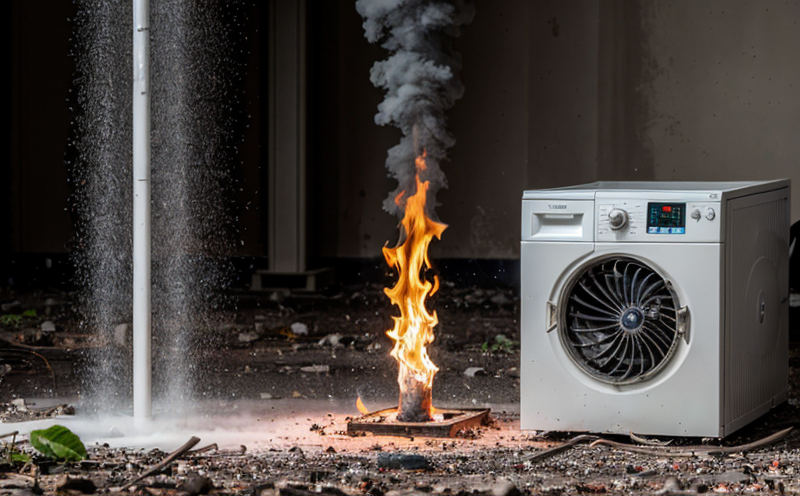SAE J2380 Vibration and Environmental Stress Testing of EV Battery Packs
The SAE J2380 standard is pivotal in ensuring the durability and reliability of electric vehicle (EV) battery packs under various environmental stress conditions. This test protocol, which includes vibration testing among other environmental stresses, is designed to simulate real-world operational environments that a battery pack might encounter during its lifecycle.
SAE J2380 specifies tests that aim at verifying the integrity and performance of EV battery packs subjected to various types of vibrations, temperature changes, humidity levels, and more. It provides comprehensive guidelines for testing the robustness of these critical components under conditions such as cold soak, high-temperature cycling, thermal shock, salt fog exposure, and vibration.
Understanding the scope of SAE J2380 involves recognizing its relevance in ensuring that EV battery packs can withstand the rigors of transportation, operation, and storage. This standard is particularly important for quality managers, compliance officers, R&D engineers, and procurement teams who need to ensure that their products meet stringent industry standards.
The testing process under SAE J2380 involves a series of environmental stress tests aimed at evaluating the battery pack's ability to perform consistently across different conditions. This includes assessing the impact of vibrations on the mechanical integrity of the battery cells, ensuring that they do not experience any deformation or damage.
For compliance officers and quality managers, adhering to SAE J2380 ensures that their products are in line with international safety standards, thereby reducing the risk of product recalls and improving customer satisfaction. R&D engineers can leverage this standard to refine battery designs, making them more resilient against environmental stresses.
The test setup typically involves placing the battery pack in a chamber where controlled environmental conditions are maintained. This includes precise temperature control for thermal cycling tests, humidity control for salt fog testing, and vibration isolation systems that generate specific frequency and amplitude vibrations to simulate road conditions.
Customer impact from SAE J2380 testing is significant as it ensures the longevity and reliability of EV battery packs. By adhering to this standard, manufacturers can build a reputation for producing high-quality products that stand the test of time and environmental challenges. This not only enhances brand loyalty but also reduces warranty claims and service calls.
- Enhanced product durability
- Improved customer satisfaction through reliable performance
- Reduced risk of product failure in real-world conditions
- Compliance with international safety standards, enhancing brand reputation
Industry Applications
The applications for SAE J2380 are extensive and cater to the broader transportation sector. This includes not only electric vehicles but also hybrid electric vehicles (HEVs) and fuel cell electric vehicles (FCEVs). The testing protocol is crucial for manufacturers, researchers, and suppliers involved in these industries.
For quality managers and compliance officers, this test ensures that the batteries used in these vehicles meet rigorous standards. It helps in identifying any weaknesses or potential issues before the products reach the market. This proactive approach can prevent costly recalls and improve overall product reliability.
R&D engineers benefit from SAE J2380 by being able to refine their designs based on real-world stress testing results. They can focus on improving battery durability, thermal management, and vibration resistance, all of which are critical for the performance and safety of EVs.
Why Choose This Test
Choosing SAE J2380 Vibration and Environmental Stress Testing is essential for several reasons. Firstly, it provides a comprehensive understanding of how the battery pack will perform under various environmental conditions that are likely to be encountered during its lifecycle.
The protocol ensures that the battery pack can withstand vibrations from rough roads or harsh driving conditions without experiencing any significant degradation in performance. This is crucial for ensuring that EVs remain safe and reliable even after prolonged use.
Secondly, by adhering to SAE J2380, manufacturers can demonstrate their commitment to quality and safety. This not only enhances the reputation of the brand but also builds trust with customers who are increasingly concerned about environmental impact and product longevity.
The test results from SAE J2380 provide valuable insights into any potential weaknesses in the battery pack design, allowing manufacturers to make necessary adjustments before production begins. This can lead to more efficient manufacturing processes and lower costs in the long run.





